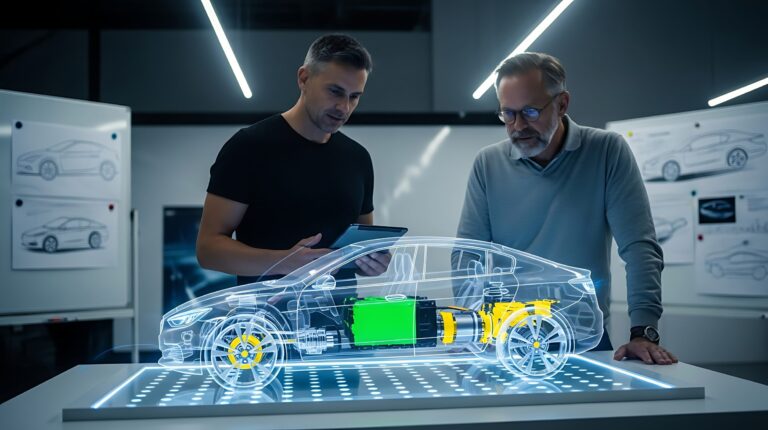MHP has developed a DIN SPEC together with Amazon Web Services (AWS) and another partner. The DIN SAE SPEC 91487:2025-08 standards define terms and characteristics for the use of digital twins of batteries in electric vehicles (EVs).
Christian Stapel, a partner at MHP, said, “With the DIN SPEC, MHP has once again confirmed its expertise in the field of digital twins and its ability to set up standards on the scale of DIN. Based on this experience, MHP also offers itself as a reliable consulting partner in the development of further standards in various areas.”
The DIN SPEC aims to provide uniform terminology, characteristics and a framework for categorizing electric vehicle batteries. The aim is to facilitate communication and cooperation between international partners and create a basis for future developments. It is aimed at research and development, and providers of Internet of Things (IoT) and cloud solutions. Industry-specific or algorithmic requirements are not included.
“It all started with the development of a digital twin at an automotive manufacturer. There was a lack of fundamental standardization. With the appropriate competence and expertise, projects of this size can now also be successfully implemented,” added Dr Markus Schütten, senior manager at MHP.
The project was implemented and formulated equally by all partners in a joint working group. MHP acted as the initiator and joint working group leader. AWS provided a solid foundation based on a preformulated maturity model – a Level 4 digital twin used for monitoring and analyzing the batteries of electric vehicles, utilizing live data, fleet knowledge and AI.
The DIN SPEC also defines classifications and categories for digital twins, making it suitable for reference in legal and regulatory documents. Plans are underway to develop the DIN SPEC into an international ISO standard to support global standardization.
In related news, Altilium recently secured grant support for a £1m (US$1.35m) project from the Department for Business and Trade and the UK government’s new Drive35 program, delivered through the Advanced Propulsion Centre, for rapid development of an innovative low-carbon transportation solution for end-of-life EV batteries


